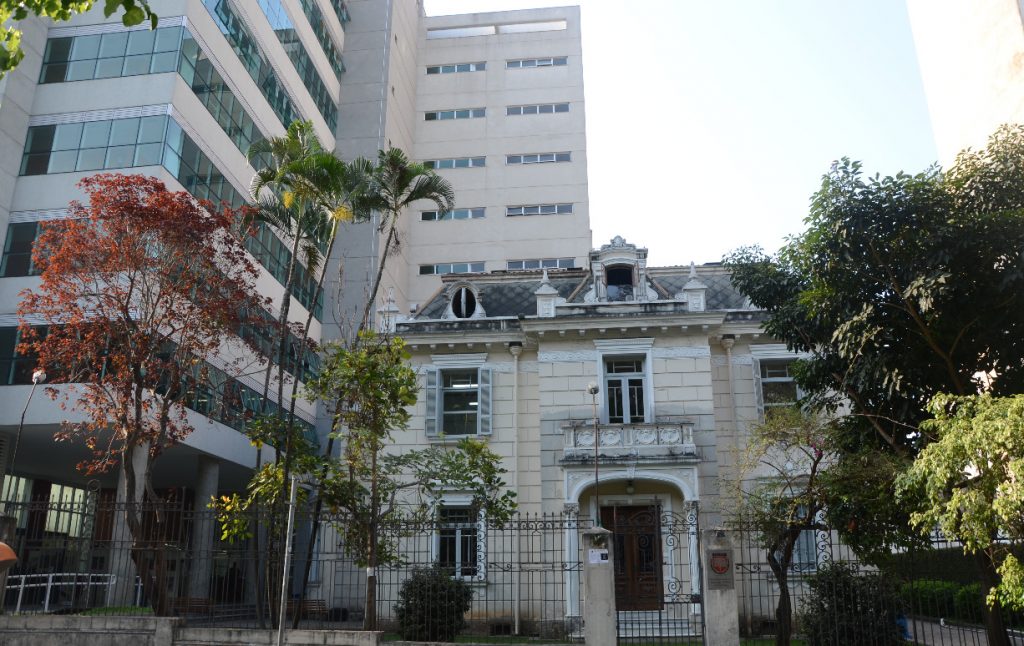São Paulo – In light of the current scenario in the Middle East and to better understand the region’s conflicts and history, the Fundação Escola de Sociologia e Política de São Paulo (Fespsp) opened a new crash course. Taught by professor José Antonio Lima, “Middle East: Foreign Policy of the regional powers” will encompass five classes from January 27 to 31, Monday to Friday, 7 pm to 10 pm. The total workload is 15 hours and it costs BRL 480 (USD 118). Enrolment is open.
Different from the one that Lima gave last August, this course is shorter and focus on the foreign policy of the region’s four major players: Saudi Arabia, Turkey, Israel, and Iran.
“I believe that the course has gained relevance in the current scenario of the Middle East. We’re seeing another chapter of a geopolitical dispute between the United States and Iran. This current phase started with the takeover of Taliban [in Afghanistan] in 2001 and Saddam Hussein [in Iraq] in 2003. Understandably, Iran felt threatened and became more assertive. This shock resulted in unrest. The Obama administration managed to achieve some stability, but when he left the nuclear agreement that had been followed through by Iran, Trump destabilized things,” Lima told ANBA by the phone from Doha, Qatar. He is taking a course on Communitarianism, Sectarianism and Government at the Arab Center for Research and Policy Studies in the country.
Lima believes theses tensions deeply impacts the Arab world, as some countries react to them while others are steered by them. “The civilian people are the most adversely affected,” he explained. It’s worthy pointing out that Iran is not an Arab country.
The crash course is divided into five classes. The first class’ contents will give a historical and geopolitical context of the Middle East, going through the nations’ formation in the end of the Ottoman Empire, the Cold War, until now. “I’ll discuss a little bit about the Iranian Revolution, then the invasion in Iraq, September 11, the Arab Spring, to explain the US role in the region, which is the power that established itself as the main cause for trying to dictate the rules in the region since the end of the World War II,” said Lima.
The other classes are divided into the four countries mentioned above, seen as regional powers. The idea is showing how global, regional and local factors interact within each of these countries and how this translates into their foreign policies. Out of those four, only Saudi Arabia is Arab.
“About Iran, for example, which is more prominent now, I’ll talk about the Iranian regimen’s situation, why it acts the way it acts, how society reacts to their own regimen, which sectors supports and which are against it, why Iran rivals to Saudi Arabia, Iran and Turkey, why each of them do this or that. And in Saudi Arabia’s case, I’m talking more about the other Gulf countries, namely, the UAE and Qatar,” Lima told. Check out the course’s full program.
Students, journalists and anyone interested in general can participate. The course’s goal is enabling students to understand the Middle East geopolitics, providing an analytical view of the current events in the region and presenting possibilities of research in different graduation levels. Former students have a discount.
José Antonio Lima holds doctorate and master’s degrees in international Relations from the University of São Paulo (USP) Institute of International Relations. Lima is a member of the Middle East and Muslim World Studies Group at the USP School of Philosophy, Language and Human Sciences. He also holds a bachelor degree in Journalism from Universidade Presbiteriana Mackenzie and a major in International Relations from FESPSP.
Quick facts
Course “Middle East: Foreign policy of the regional powers”
January 27 to 31
Monday to Friday, 7-10 pm
5 classes (15h)
Fespsp – Rua General Jardim, 522
Vila Buarque, São Paulo
Translated by Guilherme Miranda




